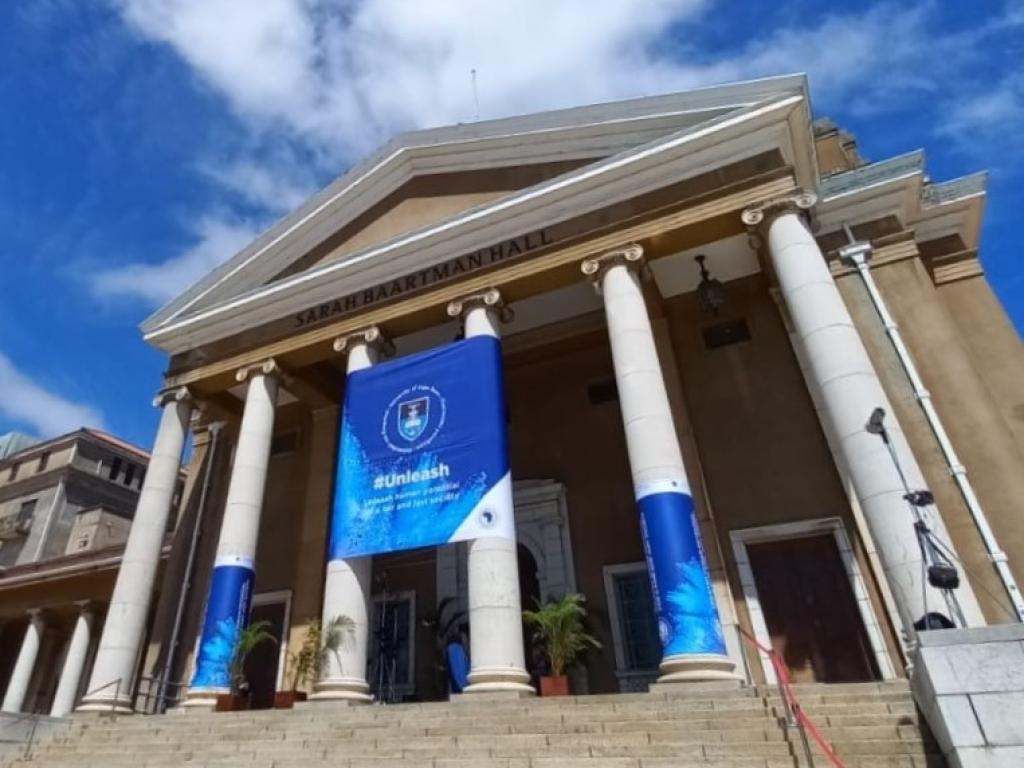Bridging science and society – ACDI facilitates climate change collaborations across UCT

The University of Cape Town (UCT) supports numerous academics and science experts who extensively contributed to the recent IPCC climate change report. Collaboration and engagement ensure that this research is shared throughout the university community and beyond. Through a webinar series, ACDI postdoctoral researcher Tawanda Jimu helps to facilitate the engagement process at UCT and establish a community of climate change practice.
Over the last few years several UCT academics/science experts contributed significantly to the recent 2022 IPCC climate change report. In addition to these contributions a number of researchers, spearheaded by ACDI postdoctoral researcher Tawanda Jimu, facilitated three UCT based webinars which aimed to highlight this research and how it may relate to UCT. The webinar series aims to encourage the engagement process at UCT, bringing together different stakeholders across the university (including students, staff, and management). This forms part of the engagement process for the new sustainability project on campus, Khusela Ikamva Sustainable Campus Project.
“The webinar format aims to help encourage discussion around climate change research and how it relates to UCT. This will hopefully pave the way for engagement processes at UCT, bringing together different stakeholders (student, staff, and leadership), to talk about climate change, adaptation, transitional process and help create a community of practice for a sustainable campus,” explains Tawanda Jimu, ACDI postdoc researcher and lead facilitator of the webinar series.
Promoting more integrated decision-making processes
The webinar series was divided into three distinct themes: key messages from the IPCC Africa chapter and its relevance to UCT, science to society regulations and how it relates to UCT, and mitigation and equity findings and their relevance to UCT. The structure of the webinars facilitated an exchange of research promoting more integrated decision-making processes at UCT. Through this exchange of ideas, the webinar series hopes to achieve a wider community of practice at UCT, reduce alienation and facilitate the move to a sustainable campus.
“We want to highlight which processes UCT should focus on in terms of research, teaching, engagement (student engagement/awareness programs) and influence. Ultimately facilitating improved climate risk management on campus,” says Tawanda Jimu.
Engagement with students is especially important but currently students as a stakeholder are under-represented. Through highlighting climate change research at UCT and bringing this research to various stakeholders, we can hopefully establish a way forward that introduces sustainability teaching at an undergrad level as well as allowing students to have a voice in the future of sustainability at UCT.
The future of engagement at UCT
Going forward Jimu suggests inviting UCT management and not just academics to participate in these knowledge sharing events. This will hopefully enable the sharing of ideas and highlight priority areas for UCT going forward.
“Participation is key for a successful transition to sustainable practices at UCT”, explains Tawanda Jimu.
These webinars will be used as a starting block for sharing ideas and promoting engagement. The hope is to expand engagement to not only include UCT stakeholders but wider networks and external stakeholders such as the City of Cape Town and communities within the city who may benefit from a more sustainable UCT.
“We are looking forward to how these webinars may contribute to wider engagement at UCT and hopefully how this may translate to other academic institutions on an international level,” explains Tawanda Jimu.
By encouraging engagement with other international universities UCT researchers and management can gain experience from other institutions and projects with similar themes and aims. Sharing ideas and challenges will promote a more integrated community locally and internationally.